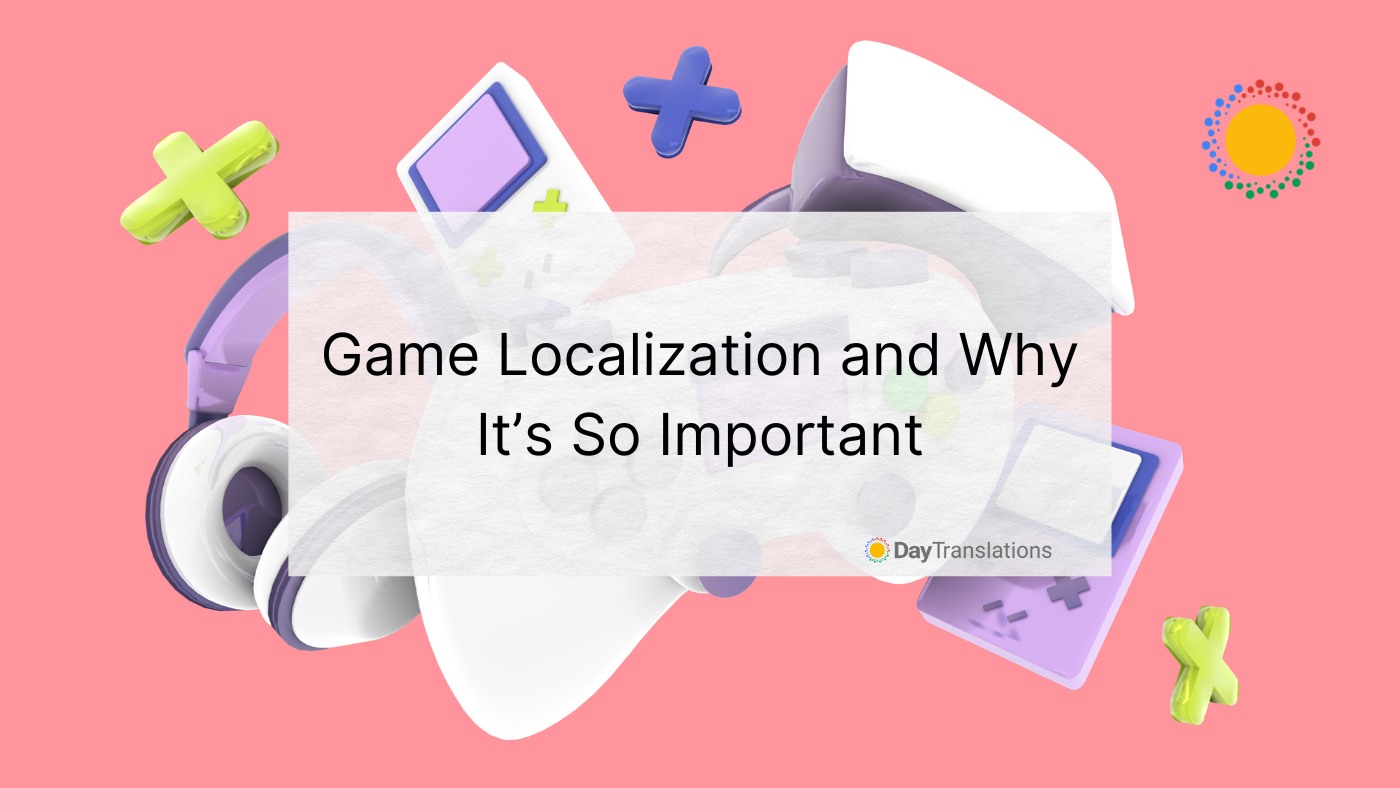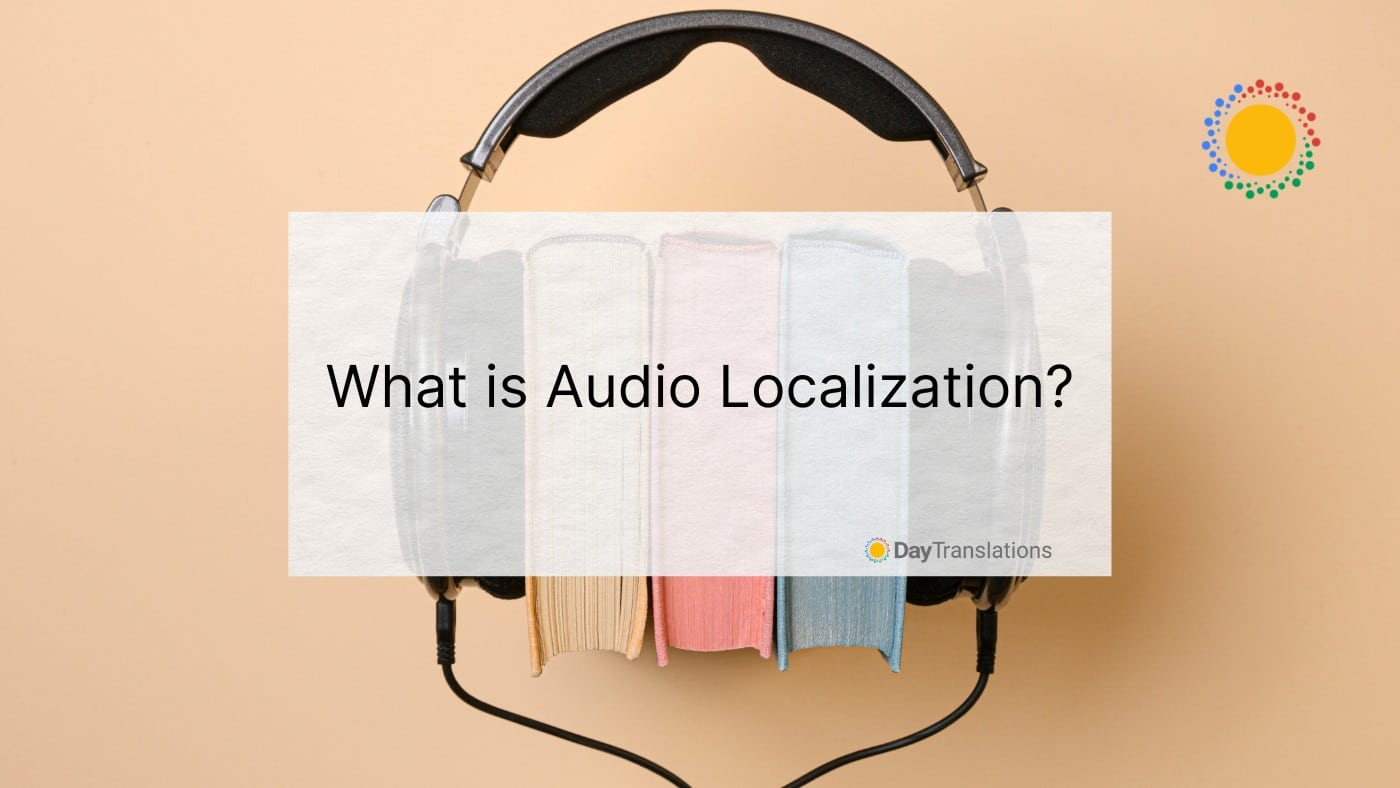Despite (and largely thanks to) the COVID-19 pandemic, the global gaming industry saw impressive growth rates throughout 2020, and by the look of things, this growth isn’t predicted to stall anytime soon. The same goes for the game localization industry.
Even though the U.S.A. ranks first among the highest income generating countries in gaming, the Asia-Pacific region dominates the global gaming market.
What does this mean?
Going international is one of the main avenues for game developers to grow their success. Appealing to gamers in non-English-speaking countries by providing them with localized versions of their favorite American games is the best and most lucrative option. In short: video game localization.
If you’re unsure what video game localization is and what advantages it holds, here’s a guide to get you started!

Use our Black Friday coupon for your localization projects, including Video game localization.
What Is Video Game Localization?
Localized video games are adaptations of original (usually English) video games that are sold on the international market. The process involves translation, internationalization, culturalization, and linguistic QA. It’s an incomparable tool for globalizing your gaming product if you want to gain maximum exposure and increase profits.
With the digital generation demanding immersion into the virtual world, they expect to feel at home in video games. The only way to offer that to a global audience is localization. A video game based on European mythology won’t be a hit in Asia because locals won’t understand the storyline.
Game localization is quite different from more common localization projects such as marketing campaigns. Every element of the game needs to be translated and adapted to suit the target audience. Text, dialogues, and other features that appeal to the gamer’s imagination must all be adjusted.
What Are the Benefits of Video Game Localization?
For a game developer, the most apparent benefit of localizing video games is increased exposure, reaching a wider audience, and making more profit. But it’s equally as beneficial for the gamers too. They get to explore a new world where the characters literally and figuratively speak their language.
Here’s a detailed look at why video game localization is so important:
It Drives Sales
Did you know that games released in English only reach just 27% of the global gaming market. With the Asia-Pacific region dominating that market, it only makes sense that you should look at ways of tapping into it. Thus, localizing your game for Chinese and Japanese markets will already see a massive increase in sales.
You could also target the FIGS region, which consists of France, Italy, Germany, and Spain, home to roughly 90 million of the world’s gamers. Your game’s niche and platform will be the determining factor for figuring out which regions you should localize for to make the most moola.
And Increases Downloads
It goes without saying that you need more downloads if you want to increase sales. But to get there, you need to widen your market reach. And localizing your game is the only way to ensure you reach more games across the global market. Almost every single game in the top 100 downloads in the App Store in China is in Chinese. Even in European regions where English proficiency is high, games still prefer games in their native language.
It Boosts User Experience Ratings
One of the easiest ways to improve user experience is by getting them to empathize and immerse themselves in the story. An authentic experience like this isn’t possible if the gamer battles through a game. And this often happens when gamers don’t understand the game’s lingo.
Gone are the days where games were as simple as hitting the cube, retrieving the flower, jumping, diving, and swimming to the next level. Today, developers allow gamers to choose their game’s direction and create their own narrative. UX is at the forefront of development, and with tailored localization, you’ll enable the gamer to play their own story. The more languages you cover, the happier users will be to play your game based on their cultural and linguistic context.
Localization Keeps You Competitive in a Tough Market
Strategy and reaction are the main reasons for game localization. We’ve already discussed the strategic approach that includes choosing specific countries and languages you can focus on. The second approach to localization is reactive. You need a way to stand out from the more than 2.2 million apps in the App Store, which is precisely why you need to localize your game.
It Saves You from Embarrassment
Professional localization reduces the risk users misunderstanding the context of your game. Localization isn’t just about translation. Translation is about replacing one word with another word with the same meaning, but just in another language. But to localize context, you need an expert. You need someone that understands the slang, jokes, and cultural references of the foreign language you’re targeting.
In essence, you’re adapting your game to include local influences like music, date formats, food, holidays, and colors based on the regional, social, and cultural environments of your target audience.
Need Professional Help Localizing Your Video Game?
Day Translations specializes in localization and can help you adapt your game to perfectly suit your target audience, regardless of which global region you’re targeting. Get in touch with our team today to learn more about our packages. We can help you create the best possible gaming experience for your audience!














Sorry, the comment form is closed at this time.